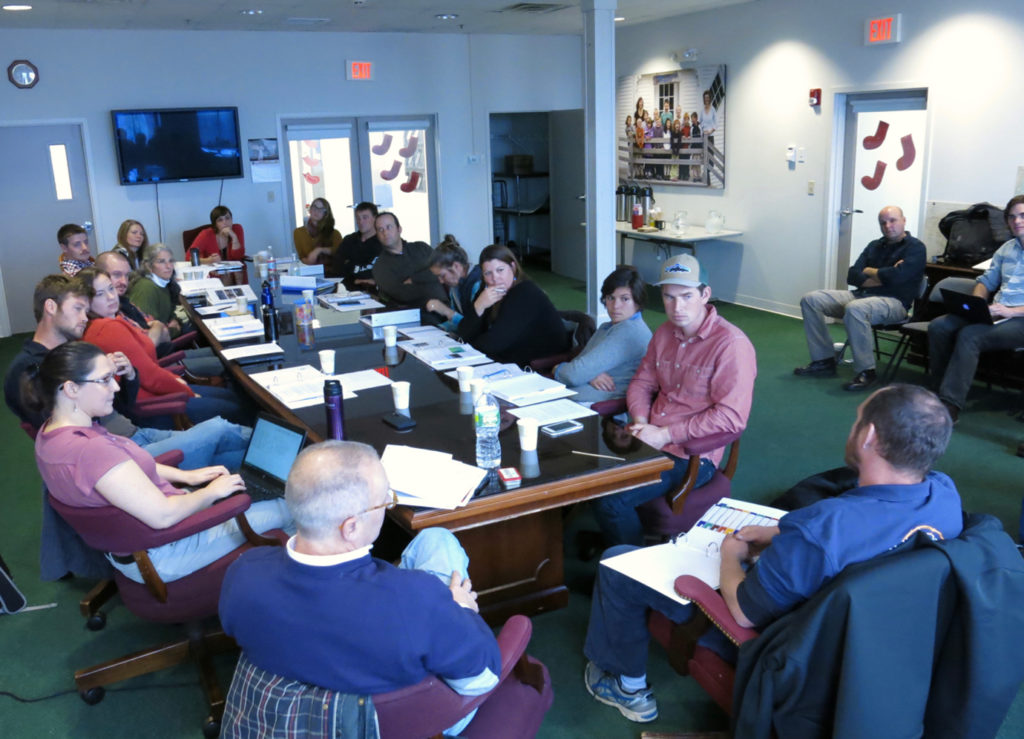Who wants to grow mussels, kelp, or oysters in Maine’s waters?
Quite a few people, it turns out. On December 10th, 20 members of the Island Institute’s Aquaculture Business Development Program (or Cohort) met for the first time in Rockland to learn about growing kelp, oysters, or mussels. Over the next six months, the group will get support in starting small-scale aquaculture businesses. The goal? Add diversified income options and start reducing the coast’s reliance on lobster.
Members of the group have experience working on the water, but come from varied backgrounds – one participant is a schoolteacher, another is a tugboat driver, yet another is a boatbuilder, and many others make their living lobstering. One husband and wife team are more interested in processing than growing, and came to seek future connections and product sources.

Karen Cooper explains her interest in aquaculture
Karen Cooper of North Haven explained her reasons for looking into aquaculture. “I tried seaweed salad when my friend had breast cancer and was eating all raw foods, and it turns out it was pretty good! So I started thinking about growing help, because I have a lobstering business in the summer, but I want a winter job working on the water. I worked with my husband who is a contractor, but it’s not my thing. And even using a nail gun, the carpal tunnel kicks in. We have the oyster farm on the island, we have a brewery… this is one more way to diversify. It’s what islanders have to do.”
For those who haven’t decided between oysters, mussels, or kelp, it’s not an easy decision. Unsurprisingly, there are pros and cons to each. Oysters don’t require much processing, and have a ready market, but they take three or four years to grow. Maine mussel growers can’t keep up with demand, but it could cost more than $100k to get started. Growing kelp is relatively easy and cheap, but the markets need to be developed.
Once each person (or team) has chosen their product, it’s on to site selection, business plan development, financing, permitting, applying for leases, and more.
But while these Mainers have a lot of hard work ahead of them, they are optimistic and determined. There’s hardly a better time to be getting into the business, with the new popularity of locally-produced and grown food. Shellfish and kelp aquaculture could provide a great way for fishermen throughout Maine’s coast to diversify their income, which is particularly important as lobster prices remain volatile.
And while it’s hard work, there’s something incredibly rewarding about growing food. If you live in coastal Maine, why not grow it in the sea?
Stay tuned to learn more about the aquaculture business development program in the coming months.


